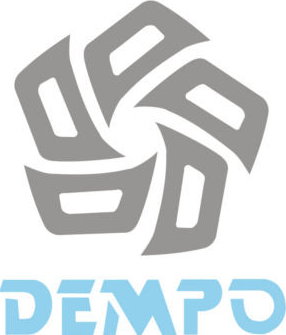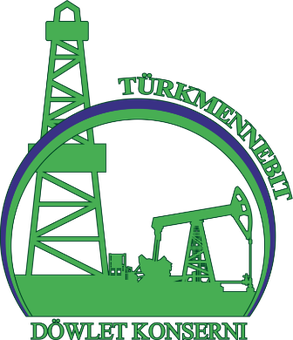
Coke is a grey, hard, and porous coal-based fuel with a high carbon content. It is made by heating coal or oil in the absence of air. Coke is an important industrial product, used mainly in iron ore smelting, but also as a fuel in stoves and forges.

Bituminous coal, or black coal, is a type of coal containing a tar-like substance called bitumen or asphalt. Its coloration can be black or sometimes dark brown; often there are well-defined bands of bright and dull material within the seams. It is typically hard but friable. Its quality is ranked higher than lignite and sub-bituminous coal, but lesser than anthracite. It is the most abundant rank of coal, with deposits found around the world, often in rocks of Carboniferous age. Bituminous coal is formed from sub-bituminous coal that is buried deeply enough to be heated to 85 °C (185 °F) or higher.
Coal gas is a flammable gaseous fuel made from coal and supplied to the user via a piped distribution system. It is produced when coal is heated strongly in the absence of air. Town gas is a more general term referring to manufactured gaseous fuels produced for sale to consumers and municipalities.
Vedanta Limited is an Indian multinational mining company headquartered in Mumbai, with its main operations in iron ore, gold and aluminium mines in Goa, Karnataka, Rajasthan and Odisha.

Petroleum coke, abbreviated coke, pet coke or petcoke, is a final carbon-rich solid material that derives from oil refining, and is one type of the group of fuels referred to as cokes. Petcoke is the coke that, in particular, derives from a final cracking process—a thermo-based chemical engineering process that splits long chain hydrocarbons of petroleum into shorter chains—that takes place in units termed coker units. Stated succinctly, coke is the "carbonization product of high-boiling hydrocarbon fractions obtained in petroleum processing ". Petcoke is also produced in the production of synthetic crude oil (syncrude) from bitumen extracted from Canada's tar sands and from Venezuela's Orinoco oil sands. In petroleum coker units, residual oils from other distillation processes used in petroleum refining are treated at a high temperature and pressure leaving the petcoke after driving off gases and volatiles, and separating off remaining light and heavy oils. These processes are termed "coking processes", and most typically employ chemical engineering plant operations for the specific process of delayed coking.

Paradeep, also spelled Paradip, is a major industrial seaport town and municipality, nearly 80 km from Cuttack city, in Jagatsinghpur district of Odisha, India. Paradeep was constituted as an NAC on 27 September 1979 and converted into a municipality on 12 December 2002. The nearest commercial airport is Biju Patnaik International Airport.

Calgon Carbon Corporation is a Pittsburgh, Pennsylvania based company that manufactures and markets products that remove contaminants and odors from liquids and gases, both for industrial, municipal, and consumer markets. Calgon Carbon's product lines typically use activated carbon in various forms,
A coker or coker unit is an oil refinery processing unit that converts the residual oil from the vacuum distillation column into low molecular weight hydrocarbon gases, naphtha, light and heavy gas oils, and petroleum coke. The process thermally cracks the long chain hydrocarbon molecules in the residual oil feed into shorter chain molecules leaving behind the excess carbon in the form of petroleum coke.

Dempo Mining Corporation Limited is a prominent mining company from the western Indian state of Goa. The mineral business was founded by Mr. Vasantrao S. Dempo in 1941 along with his younger brother Mr. Vaikuntrao Dempo. Mr. Vasantrao S. Dempo was the Founder Chairman of the company, who was succeeded by his son Mr. Vasudeva V. Dempo. Currently Shrinivas V. Dempo, son of Mr. Vasudeva V. Dempo is the chairman of Dempo Group. Dempo Sports Club is linked to Dempo mining company. Dempo company has interests in many fields and the umbrella company is known as V.S. Dempo & Co. In June 2011, Vedanta Limited acquired Dempo Group's mining assets for ₹17.5 billion (US$210 million).
Shanxi Coking Co., Ltd. (SCC) is a publicly traded coke manufacturing conglomerate in China. The company was listed on Shanghai Stock Exchange.

A delayed coker is a type of coker whose process consists of heating a residual oil feed to its thermal cracking temperature in a furnace with multiple parallel passes. This cracks the heavy, long chain hydrocarbon molecules of the residual oil into coker gas oil and petroleum coke.

Aluminium smelting is the process of extracting aluminium from its oxide, alumina, generally by the Hall-Héroult process. Alumina is extracted from the ore bauxite by means of the Bayer process at an alumina refinery.
Zinc smelting is the process of converting zinc concentrates into pure zinc. Zinc smelting has historically been more difficult than the smelting of other metals, e.g. iron, because in contrast, zinc has a low boiling point. At temperatures typically used for smelting metals, zinc is a gas that will escape from a furnace with the flue gas and be lost, unless specific measures are taken to prevent it.

Türkmennebit, also known by the translation of the name as Turkmenoil or Turkmenneft, is the national oil company of Turkmenistan. It was established by a presidential decree reorganising parts of the former Ministry of Oil and Gas in July 1996, and has its headquarters in Ashgabat. The chairman of the company is Guychgeldi Baygeldiyev. The main oil fields operated by Türkmennebit are Goturdepe, Barsa-gelmez, Nebitdag, Körpeje, Gamyşlyja, Çeleken and Kemer, mainly in Balkan Province near the Caspian Sea.

Aluminium Bahrain B.S.C. (Alba) is the first aluminum smelter in the Middle East which started its commercial operations in 1971. The electricity that powers the process come from three power stations fueled by the nearby gas fields.
GrafTech International Ltd. is a manufacturer of graphite electrodes and petroleum coke, which are essential for the production of electric arc furnace steel and other metals. The company is headquartered in Brooklyn Heights, Ohio and has manufacturing facilities in Calais, France, Pamplona, Spain, Monterrey, Mexico, and St. Marys, Pennsylvania.
Carbon additive is a product that is added to molten steel. Carbon additive includes calcined petroleum coke, graphite petroleum coke, calcined anthracite coal, electrical calcined anthracite, and natural graphite. For the steel-making industry, the most suitable carbon additive is calcined petroleum coke with fixed carbon of 98.5%min. Sulfur in calcined petroleum coke is a crucial element, for sulfur impacts the quality of steel. The lower the sulfur, the better quality of calcined petroleum coke. The sulfur content of calcined petroleum coke is decided by the sulfur content in petroleum coke. Northeast China is the only source of low sulfur petroleum coke in the world. G-high carbon has been the origin for many trading companies and metallurgical factories when they look for qualified carbon additives.
Micro carbon residue, commonly known as "MCR" is a laboratory test used to determine the amount of carbonaceous residue formed after evaporation and pyrolysis of petroleum materials under certain conditions. The test is used to provide some indication of a material's coke-forming tendencies. The test results are equivalent to the test results obtained from the Conradson Carbon Residue test.

Savita Oil Technologies Limited is an Indian automotive, industrial lubricant and petroleum specialty oils production company with its headquarters at Mumbai, Maharashtra. It has primarily engaged in manufacturing of petroleum specialties such as transformer oils, liquid paraffin and white oils, petroleum jellies, synthetic petroleum sulfonates and other specialties. Savita Oil has been ranked #42 in Fortune Next 500 list under lube oil and lubricants category, by Fortune India. The company is also involved in manufacturing of automotive and industrial lubricants. In 2018, the company relaunched Savsol, a domestic brand of lubricants and engine oils.

Haycarb PLC is a coconut shell-based activated carbon manufacturing company in Sri Lanka. Haycarb was incorporated in 1973. The company controls 16% of the world's market share. Haycarb operates manufacturing plants in Sri Lanka, Thailand and Indonesia, while marketing offices are located in the United States, the United Kingdom and Australia.











